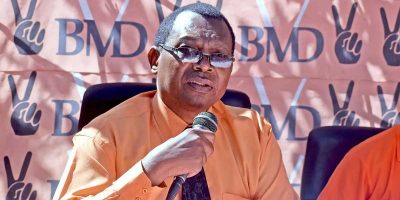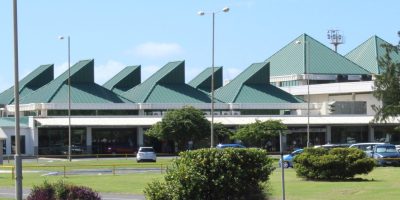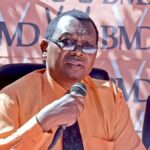Waste management and lack of recognition from state authorities are among the most significant challenges regional councils say they have to face, The Malta Independent on Sunday has been told.
This newspaper reached out to Malta’s regional councils and asked them to list what they believe are the three greatest difficulties they encounter, as well as what they propose should be done to address them.
The executive secretary of the Northern Regional Council, Bjorn Bonello, said that the northern region faces significant challenges in waste collection and management. Bonello commented that in areas such as St Paul’s Bay, “where the population is over 54% non-Maltese, the diverse demographics create additional difficulties”.
Those difficulties, he continued, include “language barriers, crammed and often substandard living conditions and atypical working schedules” which, he said, make it difficult to educate residents and effectively communicate waste management practices.
He remarked that while the region is striving to produce informational material in different languages, such an approach is costly and may not always be feasible. “Furthermore, the proliferation of dwellings in rural areas and the lack of refuse infrastructure in high-density developments have made waste collection inefficient and burdensome.”
Bonello’s proposed solution for the waste management issue is for greater collaboration with the Planning Authority, as he said that this would be critical to ensure that urban planning decisions align with infrastructure capabilities and sustainability goals. “Additionally, targeted government support to fund multilingual education campaigns would significantly enhance the effectiveness of waste management initiatives in diverse communities.”
Jesmond Aquilina, the president of the Southern Regional Council, expressed a similar sentiment when discussing the challenges faced by the southern region.
“A problem we’re trying to address is waste collection,” he remarked. “The problem did not begin now, but obviously one of the problems we find as a region is the lack of enforcement.”
He spoke of how the region recently received a report from the Environment and Resources Authority which showed that fines for wrongful waste disposal are “very few”. An aspect which contributes to the difficulty in waste management, he said, is that the region “gets caught up in wrongly mixed waste… but it is something that we have no control over”.
Aquilina said that there are local tribunals, but added that they are not divided up as the regions are. He stated that based on how the regions were set up in the last reform, there are tribunals in certain regions which actually fall under other regions.
“Waste management is something that everyone will mention,” he commented.
The Malta Independent on Sunday also spoke with Anthony Chircop, the president of the Eastern Regional Council.
Chircop also replied that “waste management is always the greatest issue”.
He continued that one needs to explain that the responsibility of the region is the issuing of tenders. “I guarantee you, and the other regions would as well, that we do our utmost to tackle waste management.”
He stated that it is important that those involved in this operation, such as all the contractors, should perform their duties by honouring their contract obligations while each local council assists with promoting a campaign for residents to follow and observe the waste collection schedule. “I am not saying that the system is ideal, but local councils cannot place total operative responsibility solely at the regions’ doors.”
The president of the Eastern Regional Council commented that regional councils need to do their part and be accountable for shortcomings, but reiterated that each local council needs to see to it that their locality is informed and educated as to why separation is important for the sustainable and economic benefits. “Adhering to the schedules is imperative,” he commented.
“I’m not shifting responsibility, but I feel that everyone needs to work together so that we manage the situation. Waste management is an everyday thing, and we need to handle it well,” he concluded.
Chircop said that he considers the location of the regional council’s administrative office and facilities to be a big disadvantage. Following the latest reforms, which saw the regional councils increasing in number from five to six, the Eastern Regional Offices, which were previously the Central Regional Council, remained based in San Gwann, which currently forms part of the Western Regional Council. He commented that this situation “tends to cause a degree of confusion”.
He said that for these reasons the Eastern Regional Council desires a move to a new “more fitting” building within the region’s new confines. “As it now stands our operations are currently spread across two units, actually three, as we don’t even have space enough to host our monthly mayors’ meetings,” he remarked.
Chircop stated that the regional tribunal and the administrative office are both situated in “separate buildings a fair distance apart”. He expressed that he feels “if the regions are to be truly given the importance these deserve to function and administrate effectively, then these should have the appropriate facilities”.
He continued that another matter which he believes is an important issue is that state authorities or entities such as the Police, Water Services Corporation and Enemalta, should operate in accordance with the distribution of the regions as they are outlined through the regional councils. “These entities operate in the interest of the country and work in a regional system, but their regions do not correspond at all with the regional councils,” he commented. He believes that this is a matter that seriously needs to be addressed, as he commented that with the existence of the regional councils, other state entities should operate in cohesion.
“Regional councils are obliged by law to conduct a Social Impact Assessment and then work towards addressing the conclusions. Each would try at establishing its particular identity. We feel that there should be some push so that these matters are more regionalised in every sense.”
Another matter, Chircop said, is that the Eastern region is a vast one. “Vast not in terms of space perhaps,” he remarked, “but we have localities which are old and others which have developed within the last 50 years, such as Swieqi, Pembroke and Iklin, with others far long established.”
“Development happens everywhere,” he commented “but our region has seen, and is still seeing, this happening big time. We need to be careful not to exaggerate with the little space there is and not spoil the lot.” He added that the Eastern Regional Council gives all possible care to the region’s environment and natural spaces such as its valleys, and is working hard towards protecting them.
Continuing on the matter of development, he said that such change brings in people connected with work, “and others eventually take up residence”. He said that these have an impact on and contribute to changing the demographic of the whole region. He expressed that while the region “tries hard” to integrate and welcome different cultures, “we need to be careful and ensure that the traditions and culture ingrained within the region remain prioritised and celebrated”.
For his part, Bonello said that a significant challenge experienced by the Northern Regional Council is that of a “lack of respect for regional and local councils as a tier of government”. He commented that despite being part of the local government framework, regional councils “often face a lack of recognition and respect from government authorities, agencies and bodies”, seemingly a similar sentiment to that expressed by Chircop regarding state entities not operating with the same regional map outlined through the regional councils.
The executive secretary of the Northern Regional Council remarked that it is too often that regional councils are treated as “subservient rather than equal partners”, which he said undermines the principles of subsidiarity and democracy which form the foundation of the regional councils’ existence.
A proposed solution to this challenge, Bonello offered, is that there needs to be a cultural shift. He continued that government bodies should view regional and local councils as integral collaborators, “not as entities to be bypassed”. He commented that requests for information or collaboration should be met with due respect and urgency. “Initiatives should adopt a bottom-up approach, ensuring they are context-driven and inclusive.”
Staying on a similar note, Aquilina stated that for the Southern Regional Council, lack of recognition is also one of its largest challenges. “When you introduce something like this, you need recognition of the region. Our role is to support the local councils. The recognition of regions is still lacking. There are those who are aware, but we are still behind.”
The president of the Southern Regional Council also added that he believes that the way the regions are divided up in terms of the police and other government departments or entities is a challenge.
Rounding up his list of the three most significant challenges felt by the Northern Regional Council, Bonello said that there is an issue of insufficient resources and powers. Regional councils, he said, in the same way as local councils, “are consistently hindered by a lack of human and financial resources, as well as limited powers such as enforcement”.
He remarked that after 30 years of local councils, there is still a reliance on entities such as the Lands Authority to determine whether a parcel of land is public or private. “This gap severely hampers our efficiency and ability to serve the community effectively,” he stated.
Bonello’s proposed solution to this issue is for regional councils to receive the same level of support as government agencies, “both financially and operationally”. He added that the regional councils should also have a more substantial role in decision-making when it comes to their council precincts.
Summarising his thoughts, the executive secretary said that the Northern Regional Council firmly believes that the solutions lie in collaboration, mutual respect and empowering both regional and local councils to fulfil their mandate effectively. “It is easier said than done,” he commented, “but through constructive dialogue and shared responsibility, we can make significant progress.”
The Malta Independent on Sunday reached out to the other three regional councils – Gozo, Harbour and Western region – but no replies were forthcoming.

















